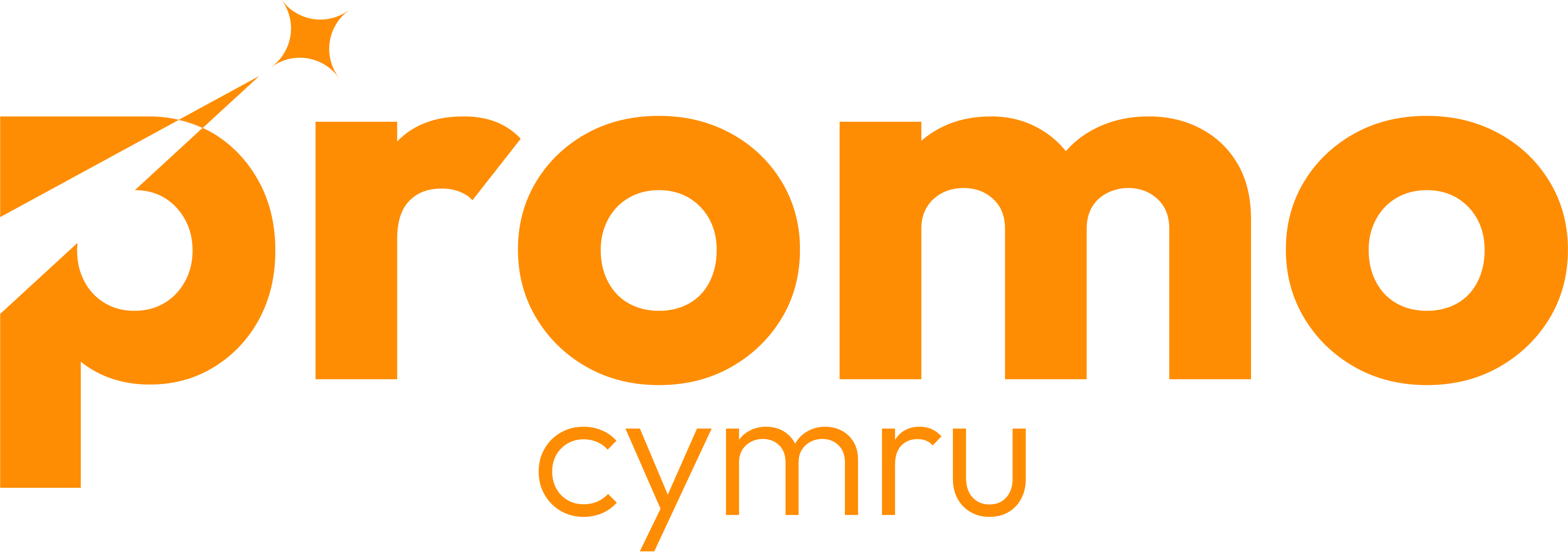by Sam Easterbrook | 13th Oct 2016
Peer to peer support, that’s service users helping other service users with advice, experiences and tips can be incredibly powerful.
Peer-to-peer support adds honesty, real-life experiences and character to your website. It can also get tricky if the advice that’s being offered isn’t great or down right wrong.
Here at ProMo-Cymru we use a tried and tested method of peer-to-peer support on three of our websites:
Aunty Sprout on TheSprout.co.uk
This is an online Agony Aunt for 11-25s in Cardiff to share whatever is concerning them.
A Problem Shared… on FamilyPoint Cymru
This is our platform for parents and families across Wales to share an issue that is affecting them.
Grab The Meic on Meic
Similar to Aunty Sprout but Wales-wide.
They all follow a similar format: A user contacts the website through a contact form on the website. We send it to our helpline advisers to provide a response. We then publish online and encourage readers to use the comments section to share their advice.
So how can you make peer-to-peer support work for you, your service and the people using it? Here’s our 4 tips…
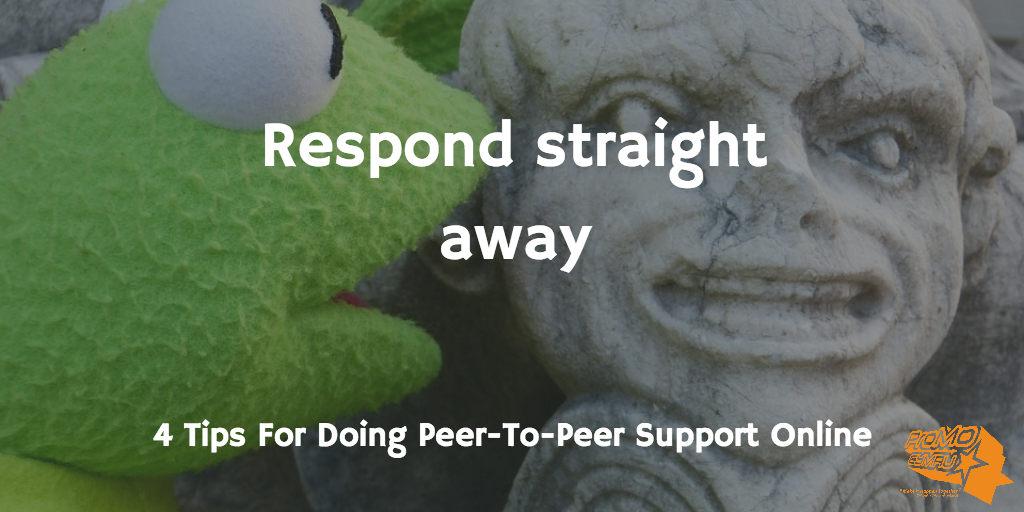
1. Respond straight away
Someone has taken the time to share an issue or problem with you. Have a stock response in place and send as quickly as possible. Thank them for their message, honestly say how long it will take for the article to go live, and offer helplines that can help them straight away. For us at ProMo we tend to direct to the Meic and FamilyPoint helplines.
Yet by saying “respond straight away” I don’t mean set an auto-respond. Tweak and tailor your response to their concerns. Also if they’re at immediate risk then you have to contact the authorities. I oversee Aunty Sprout and APS and this has never happened, but you never know.
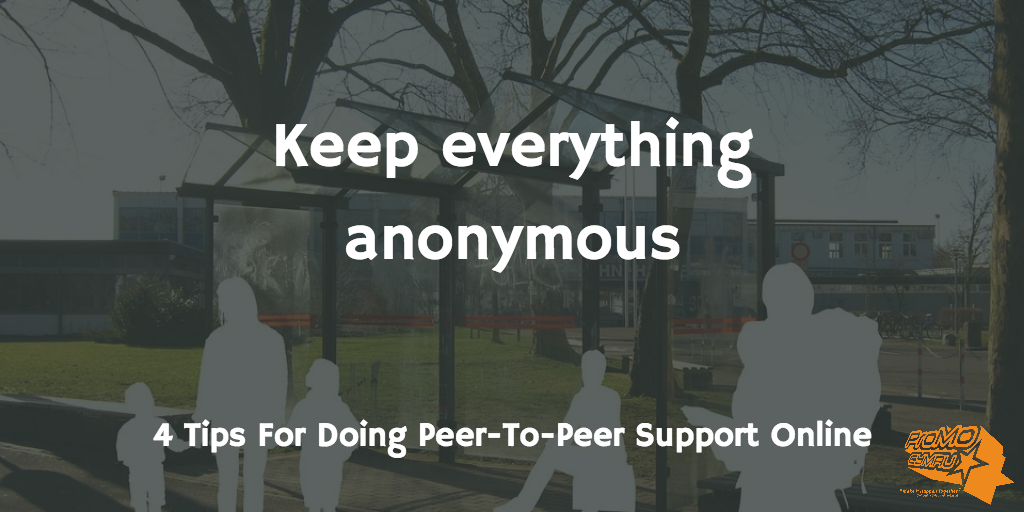
2. Keep everything anonymous
We ask for a first name and an email address, and this is our channel of communication with the user. We don’t publish any of that and we often change details, people’s names, locations and so forth so that we keep everything secure and don’t get anyone into trouble. This anonymity also allows writers to express themselves more freely, yet we ask for an email address so we have at least one way of contacting them.
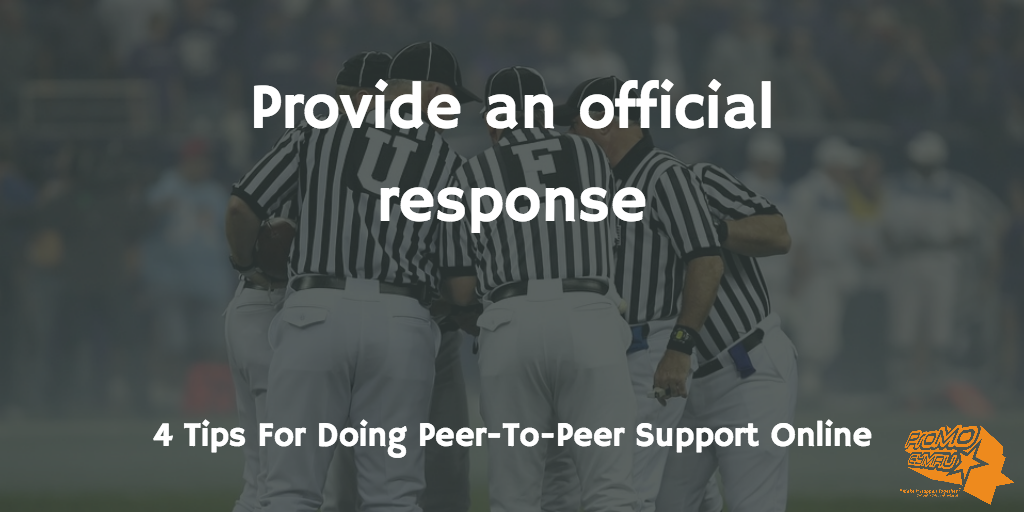
3. Provide an official response
If you’re not confident in supplying your own replies then partner with a helpline or information provider that has expertise in that field. This can be done on an official basis and sometimes the organisation may ask for something in return. This can be as simple as a banner advert or promotion within the article, to a monetary agreement.
If you’re in Wales why not partner with Meic or FamilyPoint – contact us at ProMo Cymru.
But don’t be afraid to approach organisations on an ad-hoc basis, especially if they specialise in a topic that you don’t usually cover. Use social media to ask them to provide additional responses after you’ve published the article, as this works as promotion for both of you.
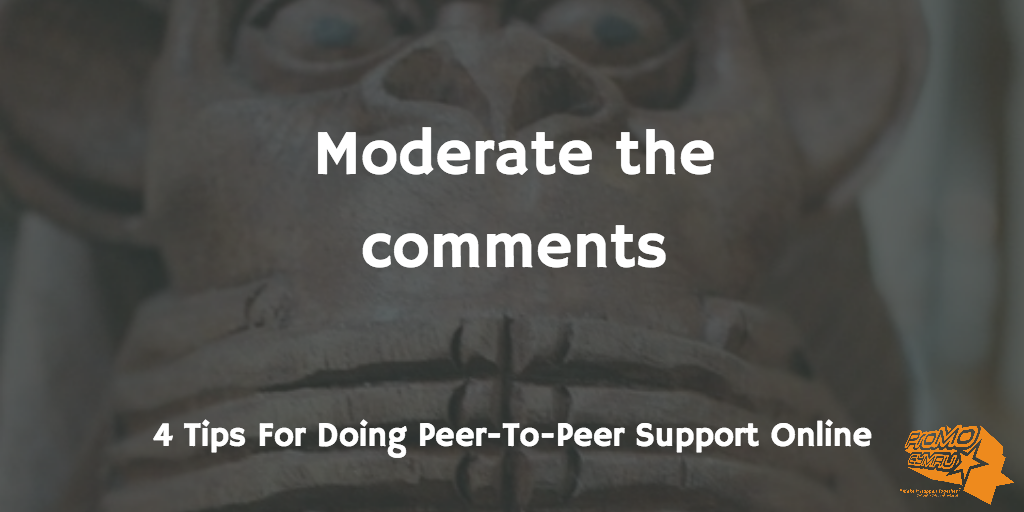
4. Moderate the comments
Pre-moderation or post-moderation. Do you let comments go live straight away and then take them down if they’re flagged by another user? Or do you moderate everything that goes live? There are pros and cons to both systems.
Pre-moderation
Pros: Secure – nothing goes up without you seeing it first
Cons: Slows conversation down and users can get frustrated that their comments are not live straight away
Post-moderation
Pros: Instant and quick
Cons: Offensive and inappropriate material can appear on your site without your knowledge
You can of course set language filters but at ProMo-Cymru we tend to operate a pre-moderation system on our websites. If your peer-to-peer support pages are covering difficult or sensitive topics you may wish to pre-moderate too. If it’s more light-hearted or things like technical support then you’re unlikely to attract trolls and can do post-moderation.

